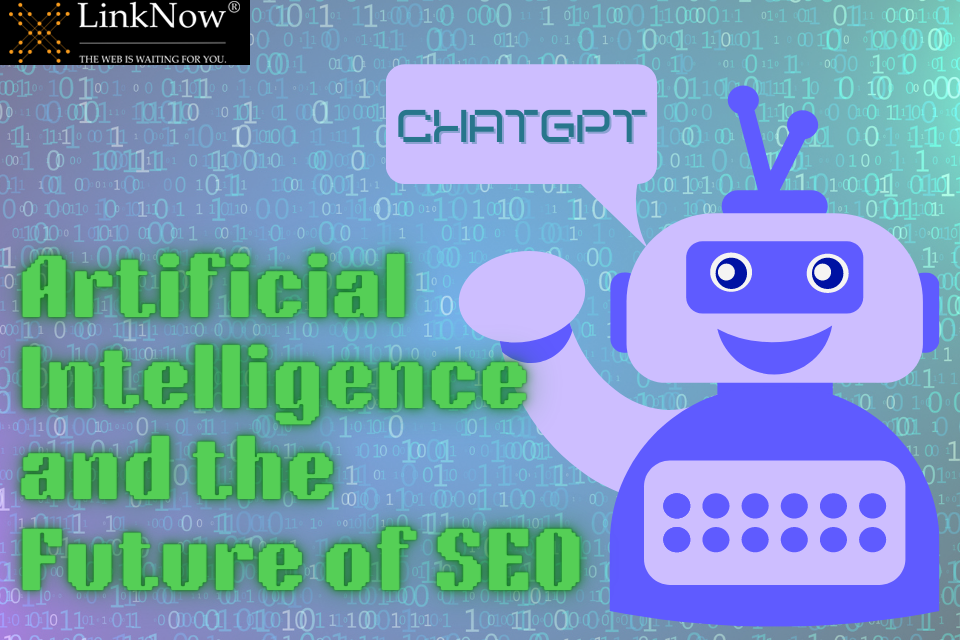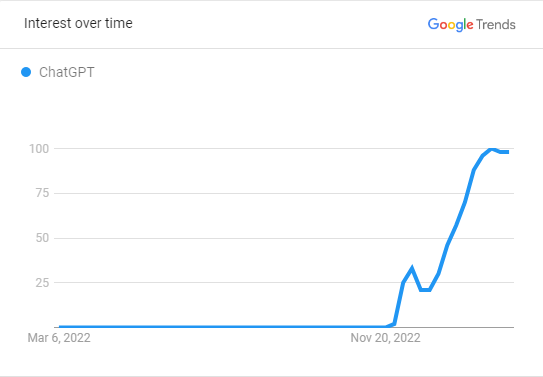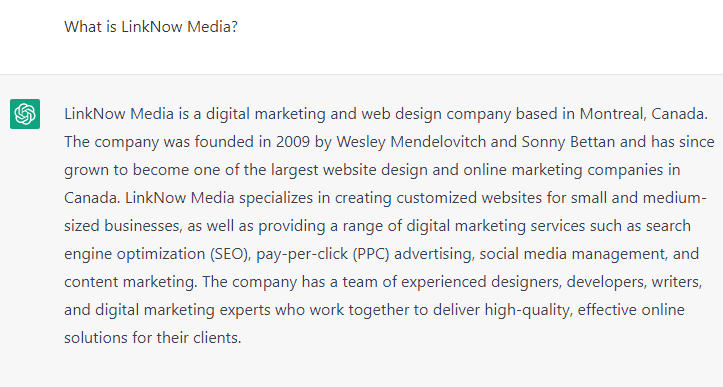
It should come as no surprise that ChatGPT is the hot topic of the day.
By the time you are reading this blog post, you will have likely already heard about this emerging technology. ChatGPT took only 2 months to reach the coveted “100 million users” milestone—by comparison, Facebook took 48 months and TikTok 9 months.
Whether you have experimented with ChatGPT or have just heard the rumblings of its rise anecdotally, it is nearly impossible to avoid the conversation and speculation about artificial intelligence.
Of course, at LinkNow Media, we are primarily concerned about how AI chatbots could potentially enhance—or hinder—the work of search engine optimization. Fortunately, we are no strangers to change in our line of work, and we believe that ChatGPT could become an effective tool if used correctly.
What Is ChatGPT?
First things first, we should probably take a peek behind the curtain of ChatGPT. Developed by the research company OpenAI, ChatGPT is a machine learning system known as a large language model.
What this means is that the chatbot is an artificial intelligence model trained on a vast supply of data and aims to predict the next word in a sentence. Rather than being designed to perform a single task, such as a chess bot, this style of machine learning attempts to develop extensive general knowledge on a variety of subjects. In theory, this is closer to how a human learns and processes information.
Because ChatGPT is striving toward general intelligence, it can often perform tasks for which it was not specifically designed. For example, Stanford University claims that it was able to translate English to French without any direct input or training in doing so. It is also worth noting that this is a developing technology. As more time, funding, and research is put into ChatGPT and artificial intelligence, it is safe to assume that it will become even more advanced.
How AI Chatbots Will Affect Online Search
With Microsoft investing $10 billion dollars in ChatGPT to integrate with its Bing platform and Google developing its own AI platform, it is only natural to wonder how this may create ripples in how users conduct searches and the role of SEO.
Large language models are extremely efficient at organizing, categorizing, and presenting data, which means they can be a powerful tool for getting answers to queries. For instance, have you ever had to rephrase a search multiple times before you got the results you were looking for? ChatGPT can prevent the need for this by automatically including synonyms and alternatives to your original phasing to get the most accurate results from a single search.
ChatGPT is also a tool that could be used to research keywords, discover link-building opportunities, and develop creative strategies for SEO professionals. As most content creation professionals will tell you, there is a certain degree of tedium in this type of work, but AI chatbots promise to help streamline some aspects of this process.
Although it is hard to deny that artificial intelligence will shake things up, it is important to remember that we are still in the experimental stages of this technology and will have to earn the long-term trust of its users.
What Are the Drawbacks of ChatGPT and AI Chatbots?
It Can’t Always be Trusted
Perhaps the biggest hurdle ChatGPT will need to overcome is the accuracy issue. At the time of writing, the GPT platform has a significant problem of providing outdated, inaccurate, and flat-out wrong information. This means that in order to publish any data that ChatGPT presents, fact-checking is a must.
The current version of ChatGPT is based only on data created before 2021, which means that it is impossible to get up-to-date knowledge from the chatbot. Even if this time gap is shorted with future updates, getting information on current events, market trends, and other shifting datasets will always be hard.
For SEO professionals, this means that conducting keyword research and other types of market analysis through ChatGPT will always pose the risk of lagging behind the actual trends.
AI-Generated Content Is Easily Identifiable
Although ChatGPT represents a huge leap forward in artificial intelligence technology, it is not something that popped up overnight. AI-generated writing has been around for years—and Google has been fighting back against it for just as long.
A glance at Google’s spam policies will reveal that it effectively bans “spammy automatically-generated content.” Although this was recently updated (it used to ban all AI-generated content), it highlights that the search platform is still committed to promoting content written specifically for humans first and not just to boost ranking through algorithm tricks and shortcuts.
In fact, identifying AI-generated content is essentially a solved problem, thanks to the years of research that Google has dedicated to the cause. Language learning models can write high-quality content, but its patterns will always be apparent. When you first generate a piece of writing with ChatGPT, you may be impressed with the quality of the work. However, if you generate the same piece of content multiple times, you will begin to realize that there is a clear structure to how it operates. Although the wording may differ, the content's similar structure will limit its reach in the long term.
Artificial Intelligence Relies on Human Input
It is safe to say that humans are always going to be crucial to the way the internet operates. Technology like ChatGPT relies on the data it draws from, all of which was created by humans. Without actual people generating new content, it is easy to see how artificial intelligence will stagnate.
Nuance, style, and the ability to connect with your audience are all things that are nearly impossible to achieve with such a broad AI system. We have covered Google’s EAT (expertise, authority, and trust) principle in a previous blog post, and this continues to be an important part of providing valuable information for your target audience.
Suppose you are considering using ChatGPT to write an article. In that case, you should ask yourself this question: “would someone require expertise, authority, or trust to provide quality information in this situation?”
The Bottom Line: ChatGPT Is a Tool, Not a Replacement
If you leave this article with anything, it should be that ChatGPT can be an amazing asset in the world of SEO, but like any tool, abusing it can cause more harm than good. Using ChatGPT to brainstorm ideas that you then expand upon yourself is the ideal use for this type of technology, and this is not likely to change anytime soon.
To illustrate an appropriate use of ChatGPT, the title for this blog post was actually generated using the chatbot—did you notice?
If you rely on an SEO company, or you are an SEO professional yourself, you should find comfort in knowing that artificial intelligence is not coming for your job or going to suddenly change how you need to market yourself. But as with any emerging technology, it never hurts to familiarize yourself with the pros and cons of ChatGPT and find ways that you can use it to your advantage.
Speak with Our SEO Professionals Today
LinkNow Media will always be happy to answer your questions and help you optimize your business for search engines. We work hard to stay up-to-date and provide our clients with the best digital marketing for their unique businesses. Reach us today at 1.888.667.7186 or website@linknowmedia.com.




